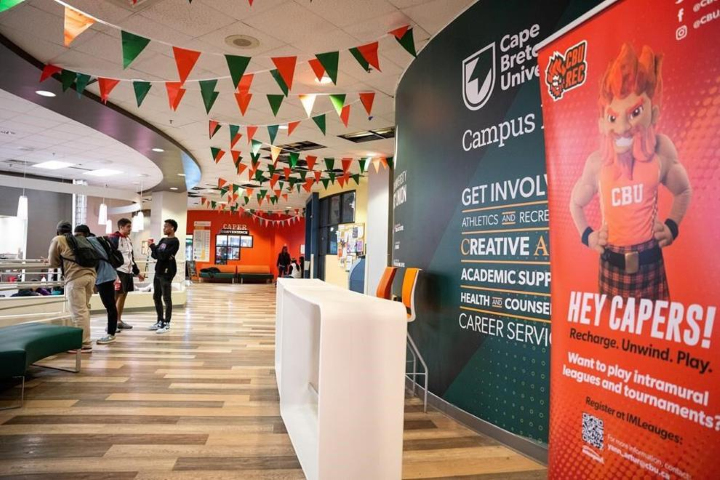
Nova Scotia universities and colleges are seeing a 35 per cent cut to the total number of international study permit applications they will receive in 2024 from the federal government. THE CANADIAN PRESS/Steve Wadden
The federal government has implemented a significant 35% reduction in international student permits in Nova Scotia, aiming to address the nationwide housing shortage by curbing the influx of international students. This decision marks a notable change for the province's universities and colleges, which have experienced a surge in international enrollment in recent years.
Brian Wong, Nova Scotia's Minister of Advanced Education, revealed on Thursday that the province would only allocate 12,900 study permit applications for 2024, a decrease from around 19,900 in the previous year. This means that a maximum of 12,900 international students will be permitted to apply to study in Nova Scotia. These adjustments come as part of Ottawa's efforts to alleviate the housing shortage by reducing international study permits across Canada by more than one-third and implementing a two-year cap on student visas.
Wong emphasized that his department has carefully distributed this year's permits among the province's 32 universities, colleges, private career colleges, and language schools. The allocation process considered various factors, including the alignment of school programs with government priorities such as healthcare and trades training. Wong stated that the department has reserved 99 application spaces to allow for some flexibility in the allocation.
Among Nova Scotia's educational institutions, Cape Breton University is facing the most significant impact, receiving 5,086 applications, a 52% decrease from the previous year. This reduction brings the school back to its 2021 application level. In response to the decline, the university announced restrictions on admissions to its two-year post-baccalaureate diploma business program, which is popular among international students, as part of a strategic effort to manage enrollment.
While some institutions like Mount Saint Vincent University and Université Sainte-Anne experienced declines in applications, others such as Dalhousie University, St. Francis Xavier University, and Acadia University saw notable increases. Dalhousie University, for instance, received 1,180 applications, marking a 70% increase from the previous year.
Wong noted that it is premature to determine the financial implications for each school, as international students often apply to multiple institutions, and enrollment is not guaranteed. However, schools with higher conversion rates – the percentage of students who apply and subsequently enroll – may see an increase in international student numbers. Nova Scotia's current conversion rate stands at 39%, below the national average of 60%.
Peter Halpin, Executive Director of the Association of Nova Scotia Universities, acknowledged that the federal reduction was anticipated following the announcement by Immigration, Refugees, and Citizenship Canada. He emphasized that Nova Scotia universities have been preparing for this change and are eager to adapt to market conditions. While there may be financial repercussions, the conversion rate remains a crucial factor.
Halpin also mentioned that it is too early to determine whether universities will seek financial assistance from the province to offset any funding shortfalls resulting from the reduction in international students. The province recently announced one-year funding agreements with universities, requiring them to develop sustainability plans for international students, outlining recruitment and housing strategies.















